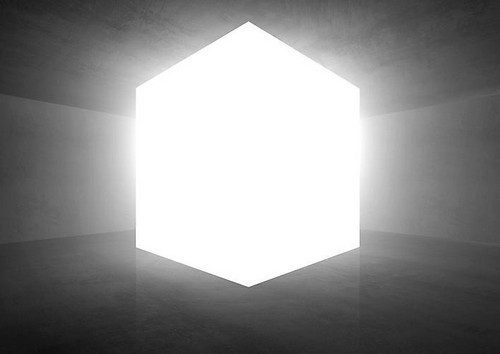Simon Ungers
17 Sep - 31 Oct 2009
SIMON UNGERS
"Light Works"
September 17 - October 31, 2009
GERING & LóPEZ GALLERY is pleased to present Light Works, a posthumous solo exhibition by the German artist and architect Simon Ungers.
Before his untimely death in 2006, Simon Ungers proposed an installation of Light Monoliths designed for Sandra Gering's Chelsea gallery space. This exhibition is the actualization of that request, consisting of six ten-foot tall Plexiglas columns illuminated internally by fluorescent light.
In 1998, Henry Urbach suggested a psychoanalytic reading of Ungers' work; now more than ever, this reading seems appropriate. The process of mourning involves a detachment from a lost object, a task that, if failed, leads to pathological melancholia. If we apply this theory of mourning on a societal level, particularly a modern, post-War European society, we can substitute the lost object with lost ideals. A member of this society that has an inability to accept this loss might experience a drive to fill the void, to create something beautiful to ease his melancholia. Born in post-War Germany, Ungers' work may have been driven by this creative melancholy. Accordingly, his works often deal with the issues of presence and absence felt in our damaged modern life. Austere forms replete of extraneous details dominate Ungers' iconic visual language.
The totemic light works of this exhibition assume an imposing aura, dominating the gallery space and intervening in the viewer's sense of spatial orientation. At the same time, the works possess an ethereal quality, as these ghostly glowing forms appear hollow, empty. The result is a powerful presence that keeps absence close at hand. Aesthetically elegant and evocative, these monoliths deliver an encounter with the sublime.
This exhibition is the physical substantiation of the melancholic mourning that productively prevents us from letting go of Ungers' creative vision.
Born in 1957 in Cologne, Germany, Simon Ungers was the son of accomplished architect Oswald Mathias Ungers. He moved to the United States in 1968, and he studied architecture from 1975 to 1980 at Cornell University. Throughout his career, Ungers was unique in his ability to bind the two disciplines of architecture and fine art. He maintained his architectural practice and artist studios in both New York and Cologne. During his life, Ungers received critical acclaim for his T-House in Wilton, New York and the Cube House in Ithaca, New York. He won many architectural competitions including first prize for the Memorial to the Murdered Jews of Europe in Berlin, Germany, but his design was not realized. His artistic practice referenced his background in architecture. Ungers' work has been exhibited in such institutions as SFMOMA, San Francisco, CA; MoMA, New York, NY; Palazzo Pitti, Florence, Italy; Deutsches Architekturmuseum, Frankfurt, Germany; and the Whitney Museum of Art, New York, NY. Ungers died on March 6, 2006.
"Light Works"
September 17 - October 31, 2009
GERING & LóPEZ GALLERY is pleased to present Light Works, a posthumous solo exhibition by the German artist and architect Simon Ungers.
Before his untimely death in 2006, Simon Ungers proposed an installation of Light Monoliths designed for Sandra Gering's Chelsea gallery space. This exhibition is the actualization of that request, consisting of six ten-foot tall Plexiglas columns illuminated internally by fluorescent light.
In 1998, Henry Urbach suggested a psychoanalytic reading of Ungers' work; now more than ever, this reading seems appropriate. The process of mourning involves a detachment from a lost object, a task that, if failed, leads to pathological melancholia. If we apply this theory of mourning on a societal level, particularly a modern, post-War European society, we can substitute the lost object with lost ideals. A member of this society that has an inability to accept this loss might experience a drive to fill the void, to create something beautiful to ease his melancholia. Born in post-War Germany, Ungers' work may have been driven by this creative melancholy. Accordingly, his works often deal with the issues of presence and absence felt in our damaged modern life. Austere forms replete of extraneous details dominate Ungers' iconic visual language.
The totemic light works of this exhibition assume an imposing aura, dominating the gallery space and intervening in the viewer's sense of spatial orientation. At the same time, the works possess an ethereal quality, as these ghostly glowing forms appear hollow, empty. The result is a powerful presence that keeps absence close at hand. Aesthetically elegant and evocative, these monoliths deliver an encounter with the sublime.
This exhibition is the physical substantiation of the melancholic mourning that productively prevents us from letting go of Ungers' creative vision.
Born in 1957 in Cologne, Germany, Simon Ungers was the son of accomplished architect Oswald Mathias Ungers. He moved to the United States in 1968, and he studied architecture from 1975 to 1980 at Cornell University. Throughout his career, Ungers was unique in his ability to bind the two disciplines of architecture and fine art. He maintained his architectural practice and artist studios in both New York and Cologne. During his life, Ungers received critical acclaim for his T-House in Wilton, New York and the Cube House in Ithaca, New York. He won many architectural competitions including first prize for the Memorial to the Murdered Jews of Europe in Berlin, Germany, but his design was not realized. His artistic practice referenced his background in architecture. Ungers' work has been exhibited in such institutions as SFMOMA, San Francisco, CA; MoMA, New York, NY; Palazzo Pitti, Florence, Italy; Deutsches Architekturmuseum, Frankfurt, Germany; and the Whitney Museum of Art, New York, NY. Ungers died on March 6, 2006.

